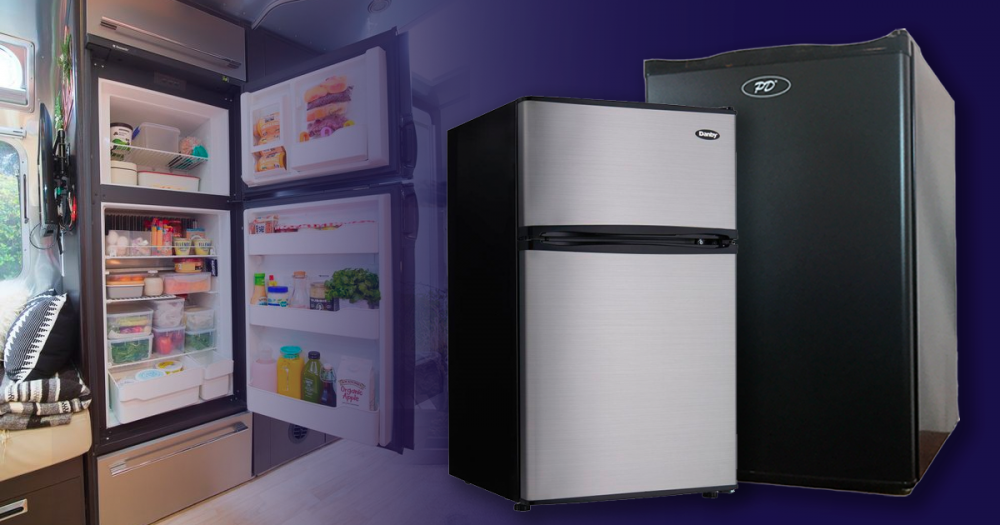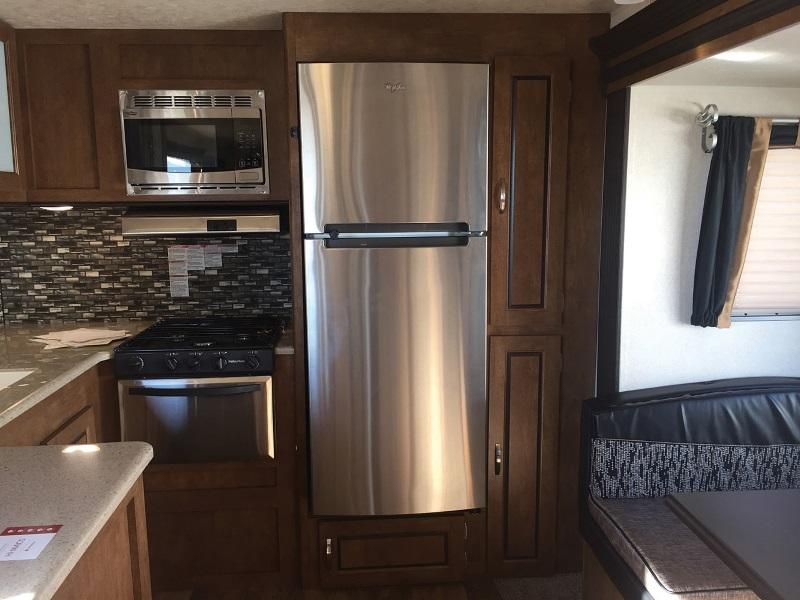6 Things to Check When the RV Fridge is Not Working
Help! My RV fridge isn’t working! If you’ve owned an RV for any amount of time, you might know the panic behind those words.
 Source: mwss-inc.com
Source: mwss-inc.com
Where do you move the food to keep it from spoiling? How do you keep beverages cool? Worst of all, if you didn’t catch the problem quickly enough, what do you do about the rotten food smell?
While RV fridge problems are a big concern, you can learn to prevent and solve the issue without too much work. In this article, we’ll explore the main reasons for fridge failure, what to do about it, and how to prevent your fridge from breaking down in the future.
What’s Wrong with My Fridge and How Do I Fix It?
RV fridges may stop cooling for several different reasons. Some causes are an easy fix, while others require a bit more maintenance work. Let’s explore the main issues that RV owners experience.
1) Does Your Refrigerator Work in Both Modes: Electric & LP?
RV fridges can use both electricity and propane as a power source. The fridge will automatically run on electricity when you are plugged in and switch to propane when traveling or parked somewhere without access to power. Some RV models run on batteries instead of propane.
If your fridge isn’t running, the first thing you should check is whether your propane or electricity is out.
- Check the tank and make sure that the valve is turned on.
- Check the excess flow valve.
- Check the pressure regulator.
- Check that the interior propane detector is set to “on.”
If you’re not sure how to do the above, it may be worth calling a technician. You don’t want to make mistakes around propane!
- Make sure you plugged in the RV.
- Check the diagnostic lights for clues to performance issues.
- Reset the breakers.
If these processes don’t work, you may want to call a technician or read more about potential fixes.
2) Is the Cooling Unit Leaking?
Your RV fridge cools through a chemical process created by heat, ammonia, water, and hydrogen gas. These substances can sometimes leak.
Open the access door at the back of the fridge. The main signs of a leak are:
- A strong smell of ammonia.
- Yellow stains or residue on the coils at the back of the fridge.
If you have a leak, you need to immediately turn off your refrigerator and ventilate your RV to get rid of the smell. To fix it, you can try to seal it up, but many experts say it’s a good time to replace the cooling unit entirely.
3) Has Ammonia Sediment Built Up?
Ammonia sediment can be a problem, especially in older refrigerators or RVs that have been in storage for a long time. As a fridge sits unused, the ammonia becomes liquid and may eventually leak or pool down the cooling unit.
Unfortunately, you can’t do much for a fridge once this happens. If you haven’t used your fridge in a while and notice it doesn’t cool or is warm, you may have sediment blocking the system. At this point, fixing the issue will just prolong the problem.
However, if you’re not ready to buy a new fridge, we do know an old-timer’s trick that often works. Unplug the refrigerator and take it out of the RV or somewhere with space inside. Flip it upside down and let it sit for a few hours. The sediment should slowly travel out of the cooling unit.
If this doesn’t work, you’re out of options and need a new fridge.
4) Is the Cooling Unit Frozen Solid?
Honestly, this is not likely to happen unless you live in a part of the world with a frigid winter – we’re talking lower than -30 degrees Fahrenheit. As long as you keep the power on and the inside above freezing, you should be fine. However, if you store your RV in subzero temperatures, your cooling unit might freeze.
Once the unit freezes solid, ironically, it won’t work to cool anything else anymore, as the frozen mass blocks the system.
The fix is simple, though. Simply use a space heater or high-wattage light bulb to gently and slowly warm the unit back up.
5) Did the Fridge Burner Fail?
A fridge burner can burn out at higher altitudes. Flame requires oxygen and fuel. Above 5,500 feet, oxygen levels drop, and your fridge will either struggle to stay cool or burn out completely.
The simplest solution to this is to always remember to switch to AC power when you’re gaining higher altitude. If you’re stuck with a failed burner, try going to a lower altitude or plug into power.
6) Tried Everything, and it Still Won’t Work?
This may sound crazy, but the problem might be related to where and how you parked.
If you are running your refrigerator while parked on an incline, the ammonia may be pooling up in the evaporator and not cycling through the system. Ammonia blockage will slow down or eventually stop the refrigerator’s cooling properties.
To fix this, make sure you park on a flat, even space.
 Source: harvesthosts.com
Source: harvesthosts.com
How to Prevent RV Fridge Problems
Routine maintenance is the name of the game to keep your RV fridge running smoothly.
- Check your fridge after each drive to ensure everything is in place.
- Keep the fridge vent at the top of your RV clear of debris.
- Try to park your RV in the shade.
- Cool your fridge before you start traveling and before you put food in it. Avoid putting hot or warm food in the refrigerator.
- Don’t overstuff your fridge. Clean out old food and make sure that air can circulate. You may want to install a small fan to help circulate air.
- Don’t leave your fridge inactive for too long. As mentioned above, this can cause ammonia sediment buildup.
- Regularly clean out and wipe down all the surfaces inside and outside the fridge.
- At least once a year, check and clean up all parts of the fridge and cooling system.
If All Else Fails, Call a Professional
As we’ve outlined in this article, you can fix most fridge problems yourself. However, with gas leaks, ammonia issues, or other serious technical issues, don’t hesitate to call in a professional.
